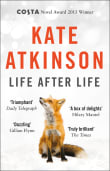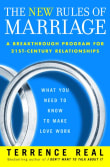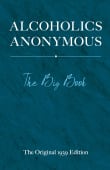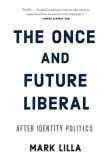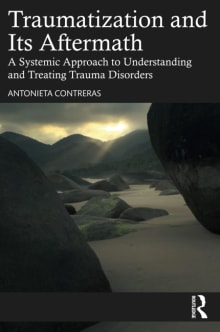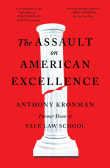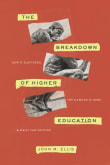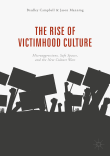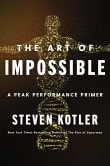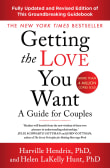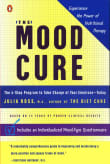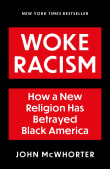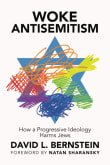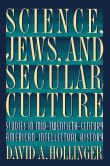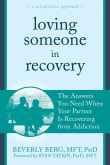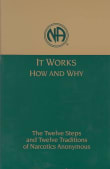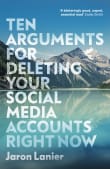The Coddling of the American Mind
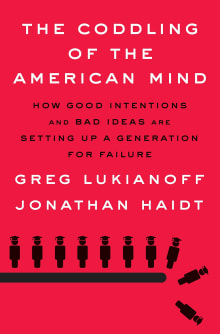
Book description
New York Times Bestseller * Finalist for the 2018 National Book Critics Circle Award in Nonfiction * A New York Times Notable Book * Bloomberg Best Book of 2018
"Their distinctive contribution to the higher-education debate is to meet safetyism on its own, psychological turf . . . Lukianoff and…
- Coming soon!
Why read it?
7 authors picked The Coddling of the American Mind as one of their favorite books. Why do they recommend it?

it made me realize how our society believes and subsequently is raising the younger generation to believe in 3 "Untruths."
They are the untruths of Fragility, Emotional Reasoning, and an "Us vs. Them."
They also analyze why these untruths are a problem and how these untruths contrast with a) ancient wisdom of many cultures, b) modern psychology research on well-being, and c) how it harms individuals and communities (through policies and political movements) that embrace these untruths.
I can see exactly how this is playing out in our society today.

It’s hard for me to overstate the importance this book played in my understanding of college-aged American adolescents. I loved the clarity, organization, and simplicity of the writing here. Bringing in time-tested wisdom from philosophers, ancient faith systems, and cross-cultural perspectives gave me the sense that I was reading about principles and values that will endure far beyond our fleeting cultural moments.
I loved the contrast of wise maxims against trendy and misleading slogans that create a more brittle and distressed generation of young adults. I loved the mix of psychological research, historical anecdotes, and individual college students’ stories, all…

What’s a book against language policing and cancel culture doing on a list about post-addiction marriage? Simple: the self-obsessed, oft-offended nonsense permeating universities exemplifies what married couples in recovery must roundly reject.
The book’s co-authors – a social psychologist and a free speech activist – profess three Great Untruths adversely affecting Generation Z:
What doesn’t kill you makes you weaker. This prompts us to avoid narratives challenging our preconceived notions or personal experiences.
Always trust your feelings. Among other problems, unquestionably trusting our feelings leads to taking offense when none is intended.
Life is a battle between good and evil…
From Christopher's list on couples recovering from addiction.
If you love The Coddling of the American Mind...

If you want to know how we got here – where college students and young adults consider speech and ideas they dislike to be “violence,” and use tools that include everything from getting people fired to actual violence to defeat those they disagree with – this is the book for you.
Things have only gotten worse since the book’s publication in 2018, but the authors convincingly show how overlapping trends in parenting, politics, and education have produced a generation that is fearful, quick to take offense, and unable to think critically and independently. That in turn created a perfect environment…
From Suzanna's list on why liberals should fear “woke” culture.

This book is so different from the other books on my list. I just finished reading this book recently. I found it completely fascinating. It talks about how our newer generation has changed how we listen, talk and feel. I find that this is happening in relationships as well. This book is a weave of communication, how we take things way too personally and how this affects how we interact with others in life and how we relate to our feelings. I think this book can help how we listen, share and have internal boundaries. While reading this book I…
From Madhur-Nain's list on creating inner and outer change in your life area.

Lukianoff and Haidt do us a service by clearly differentiating two types of identity politics. Common-humanity identity politics emphasizes a universalistic common ground to which we should aspire, but points out that certain groups are being denied rights. In contrast, common-enemy identity politics views society as composed of huge social forces working on large demographic categories. The forces are power relations making people privileged or oppressed depending upon the conjunction of demographic categories (race, gender, sexual orientation, etc.) that characterize them.
The power politics of the common-enemy strategy is zero-sum: it assumes that a gain for designated victim groups necessarily…
From Keith's list on university identity politics and political correctness.
If you love Greg Lukianoff...

This book offers an overarching analysis of good ideas gone wrong—across the political spectrum. Among young people, rates of anxiety, depression, and suicide are rising, and that was before the pandemic. Liberals and conservatives alike are finding it difficult, if not impossible, to expose themselves to ideas from the “other side,” taking cover in shouting down the opposition with the justifications of the righteous. Between the rising prevalence of censorship and self-censorship on one hand, and the rising incidence of hate speech and hate crimes on the other, how do we navigate? Law professor Greg Lukianoff and social psychologist Jonathan…
From Carol's list on navigating the road to the good life.
If you love The Coddling of the American Mind...
Want books like The Coddling of the American Mind?
Our community of 12,000+ authors has personally recommended 100 books like The Coddling of the American Mind.




